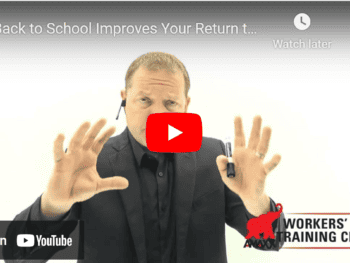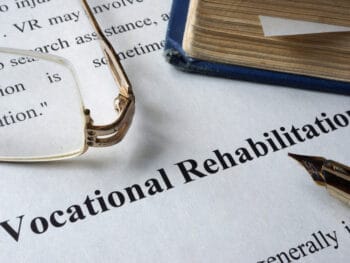In some claims, there is a disproportionate length of time out of work, and the time out of work is longer than medically necessary. For example, if an employee is injured June 1, and is healed June 10, he/she should be back to work June 10. However, often an employee is out of work for weeks or months longer than medically necessary. This costs you money. The injury coordinator's (IC's) task is to bring the length of time out of work back down to match the length of time an employee is medically unable to work. This saves you money. The injury coordinator must manage every aspect of the claim to ensure the employee is not out of work longer than medically necessary. The proactive worker's compensation program addresses the following areas before an accident: 1. Develop an employee communication program including get well cards, written post injury plans detailing what steps should occur within the 24 hours after an injury. 2. Train supervisors in post-injury response so the response is automatic, and they know exactly what to do, who to call, where to take the employee for medical care right away, and so they know what paperwork is necessary. 3. Develop medical care coordination by establishing relationships with medical clinics. Have the doctors to your facility, and you go to the medical facility to make sure it is clean, timely, and is the type of facility your employees will receive good quality care. 4. Make nurse triage part of the process. At some TPAs and insurance companies, a nurse triage is used on every claim. If it's an extra charge, consider it closely as it may reduce overall costs. Give it a try, include it in your Account Handling Instructions. For example, a Senior Nurse Reviewer receives a call about the claim as soon as the claim occurs. Sometimes, the arrangement is set up so the Sr. Nurse Reviewer is brought in on initial intake at the TPA to make sure length of disability is appropriate and followup care is explained to the employee. TPA's such as Broadspire have Sr. Nurse Reviewers, and also firms like Coventry make those services available. 5. Interview settlement evaluation firms such as www.Impairment.com so your company can challenge impairment percentages that seem too high. Don't just accept the impairment ratings provided by the claimant's doctor, have a close look at the percentage and what AMA guidelines are used. Become familiar with the ratings and schedules in your jurisdiction, don't rely on the TPA to know it — you should get to know it too! (workersxzcompxzkit) 6. Make sure the employee takes Work Ability Form to doctor, the doctor completes the medical restrictions, the restrctions get to the Injury Coordinator then to the supervisor, and a light duty position is offered to the employee as soon as they are medically able. 7. Collect supervisor and witness reports immediately after the injury while memories of the incident are still fresh. Make sure the statements are signed. If possible take a photo of the accident location to keep the facts and descriptions in perspective. 8. Assign transitional duty starting day and time. Be creative in finding tasks for all employees who are injured. You take a "wish list" approach, asking supervisors and others if they had a wish list, what would they like to have done. Any productive task is better than not task or the employee will feel isolated and left out, no longer part of the team. And, after a couple weeks sitting home, they won't want to go back to work any longer, so find transitional duty from DAY ONE, if at all possible. 9. Implement a communication program from the first day by calling the employee at home the evening the injury occurs. Employees should get YOUR message first! They'll get someone's message, so make sure it's YOUR message. Institute get well card programs, first day phone call programs, call home programs, weekly meetings at the operations centers, include employees in safety meetings and other in-plant meetings so they feel like part of the team. 10. For employees that will never return to your workforce, if you cannot accomodate their restrictions, use a firm such as www.NationalJobFinders.com to help them find work. In many cases, they may not want to work, you'll be able to show non-compliance (no desire to work).
Author Robert Elliott, executive vice president, Amaxx Risks Solutions, Inc. has worked successfully for 20 years with many industries to reduce Workers' Compensation costs, including airlines, health care, manufacturing, printing/publishing, pharmaceuticals, retail, hospitality and manufacturing. He can be contacted at: Robert_Elliott@ReduceYourWorkersComp.com or 860-786-8286.
Do not use this information without independent verification. All state laws vary. You should consult with your insurance broker about workers' comp issues.















